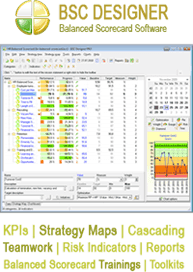What Are The Key Players In Globalization Measurement?
The most renowned index for globalization is called “KOF index”. This was introduced and established in 2002 by the KOF Swiss Economic Institute. Further it was published by Axel Dreher and his group of actors. This across-the-board index gauges different kinds of things such as economic, social, cultural, and political dimensions of globalization. Now statistics are easily reached on an annual basis for 122 countries, and the 2007 index brings in a rationalized version and description of the original index. While creating and building the indexes of globalization, the variables are transformed and altered into an index on a scale of 1 to 100, where 100 is the highest value for an explicit variable over the times and 1 is the least amount value. Elevated values represent superior globalization.According to the index, “the world’s most globalized countries are comprised of Belgium, Austria, Sweden, the United Kingdom, and the Netherlands”.The least globalized countries and states are comprised of Haiti, Myanmar, the Central African Republic, and Burundi. Another very important measure and index of globalization is the mutual periodical of A. T. Kearney Foreign Policy Magazine Index (KFP). The KFP endeavors to make available a wide-ranging measure of the scale of globalization collectively by measuring and ranking 62 countries, symbolizing all the momentous regions that give an explanation for 96 percent of the world’s gross domestic product(GDP), and 85 percent of the world’s inhabitants. The KFP index focuses on four most important dimensions of globalization. These involve economic integration, technological connectivity, personal contact, and political engagement.Anti-globalization is a term generally used to depict the political, economic, cultural and sociological behavior and posture of community people, groups, and organizations who contradict the neoliberal ideology of globalization. A number of anti-globalization actors are International Institute for Sustainable Development, International Forum on Globalization, Greenpeace, World Wide Fund for Nature, Oxfam, Friends of the Earth International, Center for International Environmental Law, Public Citizen, Consumers International, World Conservation Union, Focus on the Global South, One World, Third World Network, International Center for Trade and Sustainable Development, and the Center for Research on Globalization.Pro-globalism is a term generally used to depict the political, economic, cultural, and sociological attitude and behavior of people who look after the neoliberal ideology of globalization, for example, free trade, economic freedom, libertarianism, and democratic globalization. Some of the pro-globalization actors are International Policy Network, Sustainable Development Network, Competitive Enterprise Institute, Cato Institute, Institute of Public Affairs, American Enterprise Institute for Public Policy Research, World Growth, Heritage Foundation, WTO, IMF, World Bank, and the Organization for Economic Co-operation and Development.


